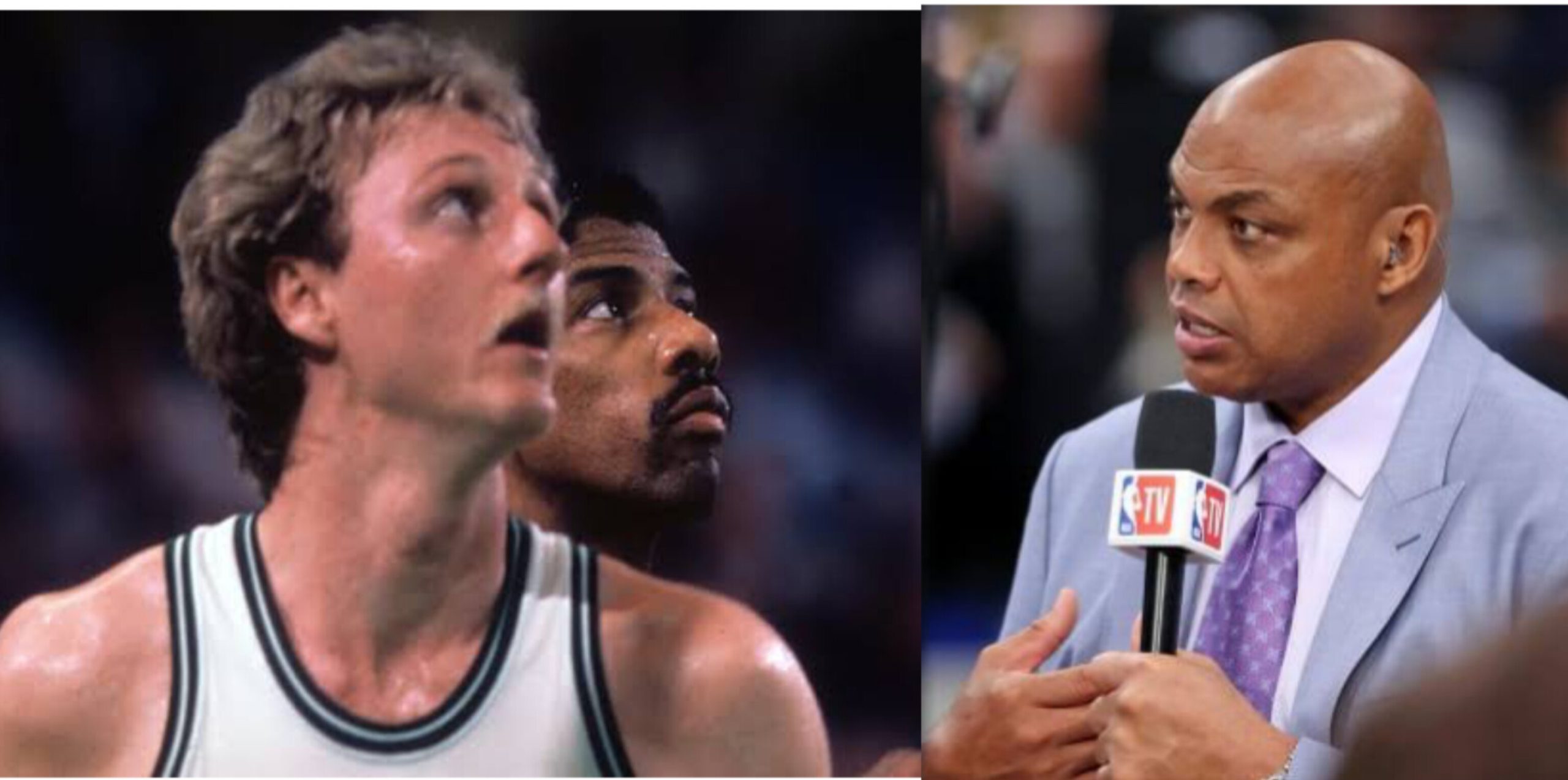NBA legend Charles Barkley did not mince words when reflecting on one of the most infamous moments in NBA history—when Julius Erving, also known as Dr. J, punched Larry Bird during a heated game. Barkley described the incident as “a height of disrespect and a show of no athletic expertise,” condemning the actions that led to the confrontation and expressing his disapproval of such behavior on the basketball court.

The altercation between Dr. J and Larry Bird occurred on November 9, 1984, during a game between the Philadelphia 76ers and the Boston Celtics. The game was already intense, characterized by physical play and competitive fervor. Tensions escalated when Bird, known for his fiery competitiveness and relentless play, and Erving, celebrated for his athleticism and skill, got into a scuffle that culminated in punches being thrown.
Charles Barkley, who played for the Philadelphia 76ers and was a contemporary of both Bird and Erving, has always been outspoken about maintaining professionalism and respect in the game. He criticized the altercation, noting that it represented a departure from the values of sportsmanship and athletic excellence that the game should embody. “That was a height of disrespect and a show of no athletic expertise,” Barkley commented, underscoring that the incident was an unfortunate blemish on both players’ storied careers.
The altercation began with a series of physical exchanges between Bird and Erving. Bird, known for his trash-talking and aggressive play style, had been dominating the game and made several provocative comments directed at Erving. Frustration boiled over when the two stars grappled with each other during a play, and tensions erupted into a full-blown fight. As a result, both players were ejected from the game.
Barkley’s comments highlight the broader context of respect and professionalism that he believes should define the sport. “You don’t show your greatness by fighting on the court,” Barkley said, emphasizing that true athleticism is displayed through skill, teamwork, and respect for opponents. His perspective reflects a desire to see the game played with integrity, even amid the intense competition and rivalry that define professional basketball.

The Bird-Erving fight is often remembered as a symbol of the intense rivalries that characterized the NBA during the 1980s, a period marked by fierce competition and passionate play. While the incident has become a part of basketball lore, it also serves as a reminder of the importance of maintaining sportsmanship and respect, even in the heat of competition.
Despite the altercation, both Bird and Erving went on to have illustrious careers, each leaving an indelible mark on the NBA. Their rivalry, though intense, was also marked by mutual respect and admiration for each other’s talents. In the years following the incident, both players moved past the fight and continued to contribute to the game in significant ways.
Barkley’s reflections on the fight serve as a cautionary reminder of the potential for physical altercations to overshadow the true spirit of competition. His call for respect and professionalism resonates with a broader audience, reminding players and fans alike that the essence of the game lies in athletic excellence, sportsmanship, and mutual respect.

In conclusion, Charles Barkley’s condemnation of the Dr. J and Larry Bird altercation as “a height of disrespect and a show of no athletic expertise” underscores the importance of maintaining decorum and respect in sports. The infamous fight, while a part of NBA history, also serves as a reminder of the values that should guide professional athletes both on and off the court. As the NBA continues to evolve, the lessons from such incidents remain relevant in fostering a culture of respect and professionalism in the sport.



